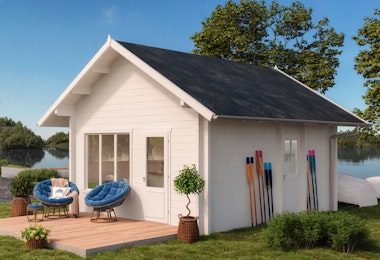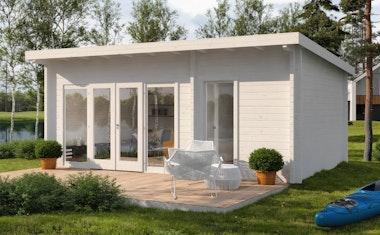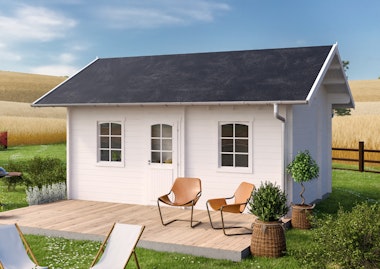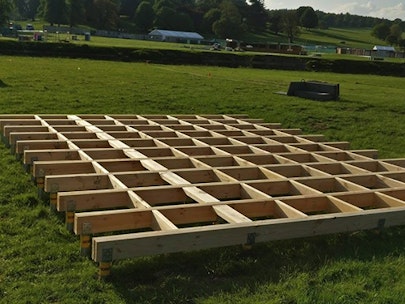
How much will the house cost?
Agneta Broman / 2 min reading / Garden house, Small garden sheds
When building a house, the costs can get out of hand. It's difficult to plan, especially when unforeseen expenses appear along the way, and suddenly you have a house project that you don't know how to cope with financially.
One way to avoid this (in addition to doing your homework and trying to find out as much as possible before you start) is to decide in advance how much money you want to spend and how much you can afford when you buy a garden house or garden room. It's also wise to use a wide safety margin and then stick to your plan.
As a customer, you should start by asking yourself how much the house might cost. If you don't get the house you want for the money you're able to invest, it's best to wait until you can afford it. This has limits, of course, as there's no point in waiting your whole life to afford a castle with a gold facade, but you shouldn't buy a house you’re at best half satisfied with, because then you’ll probably never be completely satisfied.
Make a savings plan
A savings plan, or budget, is nothing out of the ordinary. It's just about putting numbers on things to find out how much flexibility there is. Once you have calculated how much you need and how much you can save, you’ll know how long it's going to take.
It's important to set well-balanced goals. The amounts you can save shouldn't be 'unattainable happiness' calculations, and you shouldn't count on setting aside a higher amount than is actually possible. But it must also be reasonable in the other direction, so you feel your goal is within reach. It's not really an option to live on bread and water for three decades, so you might have to lower your requirements to avoid giving up on your dream.
Save
If saving isn't enough, go one step further! The first step is to go through your household expenses and see what can be reduced or removed. For example, there may be subscriptions that are more expensive than others (or that could be removed without anyone missing them) and insurance that is too expensive or unnecessary.
Next you can try to find creative savings projects, such as starting to cycle to work, exchanging restaurant lunches for packed lunches or shopping at a cheaper supermarket instead of the local deli. All of these are good ideas and every penny saved counts.
Take a shortcut
It can be difficult to protect yourself from all eventualities and decide in advance how big the final amount will be, and this applies not only to money but also to time. Time is one of those factors that has a tendency to snowball uncontrollably during construction. Everything takes longer than we expect. As well as this, a lot of time is lost on other things than the construction itself, such as finding materials of the right quality at a good price.
But it is possible to 'cheat' for those who realise that it's not the method that is the goal. If you buy a finished house from Polhus, either as a kit or pre-assembled, most things can be predicted so you can relax.
The best way to get started - our guide!
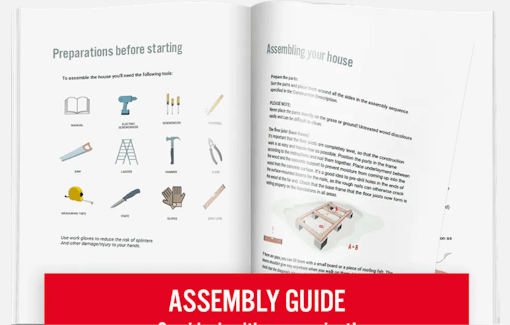
The best way to get started - our guide!
The assembly guide contains valuable tips and advice from our construction experts. A good base and a manual for those who plan to assemble the house themselves. We walk you through what’s important to consider before starting construction, the foundation options our experts recommend, and how the assembly works.
Read all about this and much more in our guide. We will send the assembly guide free of charge to your email. Good luck with your project!


